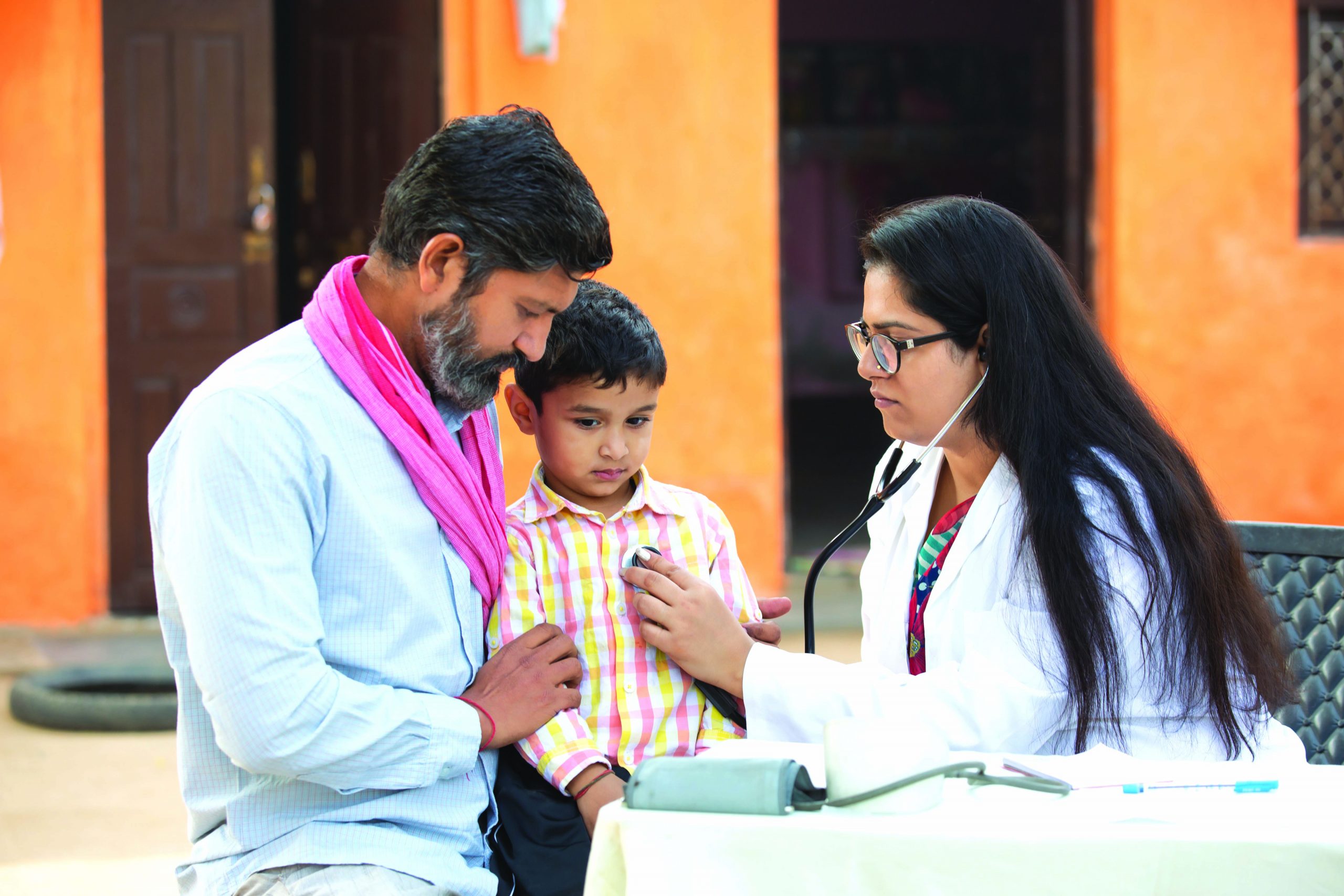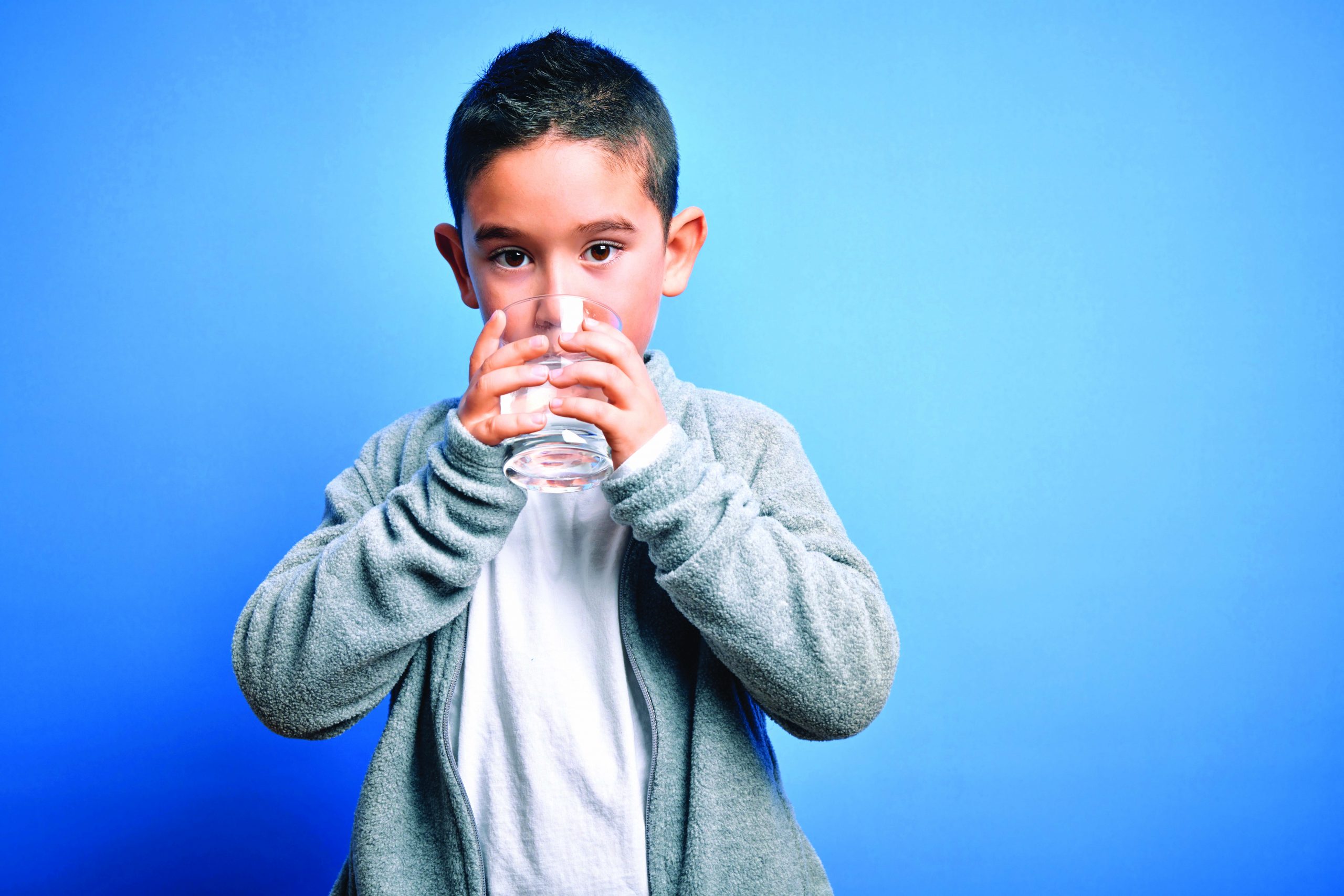Around the world, child development professionals are warning that even high-information parents can become susceptible to child health and nutrition myths recklessly viraled on the internet, WhatsApp groups and social media platforms, write Poornima Dilip, Cynthia John & Mini P.

In the new age of the worldwide web and ubiquitous social media, young parents have free and easy access to good, bad and indifferent advice on ways and means to nurture 21st century children. But startling new evidence is emerging that information overload is confusing and stressing young parents worldwide.Unsurprisingly childcare and nurturance professionals are unanimous that reliance on online health and medical advice is dangerous. In an essay for the Washington Post, Dr. Alice Callahan, a US-based author and well-respected nutritional biologist, writes: “Know that no website can be a substitute for a healthcare provider. If you think your child is really sick, don’t bring her symptoms to Facebook. Get real medical care”.
This advice is fast assuming choral proportions. Around the world, child development professionals are warning that even high-information parents can become susceptible to child health and nutrition myths recklessly viraled on the internet, WhatsApp groups and social media platforms. With the after-effects of the Covid-19 pandemic continuing to threaten children, parental anxiety about children’s well-being is unabated. ParentsWorld spoke to well-qualified medical experts and paediatricians to compile a list of seven important child health truths and myths of which every parent should be aware to enable orderly child development.
Pregnant women should not eat for two
A myth perpetuated through generations is that pregnant women should eat for two people. Therefore, they are often force-fed high calorie foods such as ghee, sweets and meat. For instance in Indian joint family households, it’s quite common for elders to insist that women consume 10-15 litres of ghee during their pregnancy. Such advice should be disregarded.
Over-eating during pregnancy leads to weight gain, increases the risk of gestational diabetes, backaches and high blood pressure and ups chances of delivering an overweight infant. Moreover, there’s increased risk of both mother and child being predisposed to obesity throughout life.
“This is an ancient myth. A pregnant woman should definitely not eat for two in terms of quantity. They should consume a nutritious diet rich in folate, vitamins and minerals, protein and fibre. Quality of food matters, not quantity,” warns Dr. Vasanthi Venkatesh, obstetrician gynaecologist at Shraddha Clinic, Bengaluru.
The Indian Council of Medical Research recommends pregnant women should increase food intake by a mere 300 calories per day against the average daily consumption of 2,000-2,500.
Milk intake can never be enough
Milk is hyped as a compulsory and often sole nourishment for infants and children. In most middle class homes, parents insist that children continue this habit into adult life. Though there’s no denying that milk is a good source of nutrition and calcium, over consumption can cause dental caries.
According to Dr. Ashmita Sudhakar, dental surgeon at the Akshaya Dental Care Centre, Bengaluru, though milk is not cariogenic and doesn’t cause dental caries by itself, consuming it at wrong times in the wrong way may cause dental problems. “Many parents give infants a bottle of milk to consume through the night. This is not a good practice because during sleep, we produce less saliva to protect us against cavities. Also milk deposits in the mouth lead to bacteria and corrode teeth. Moreover, parents should clean their infant’s mouth with a wet washcloth after milk intake,” says Dr. Sudhakar, who adds that parents of older children should serve milk with or after dinner, always before the night tooth brushing routine.
Citing World Health Organisation (WHO) guidelines, Dr. Nisha Miriam George, a paediatric consultant at the Sundaram Medical Foundation and Dr. Rangarajan Memorial Hospital, Chennai, recommends that milk and milk products should be restricted to two-three servings per day. “Infants below three years fed excess milk are at risk of developing iron deficiency anaemia. If children don’t like milk, don’t force-feed them — try yogurt or paneer. Moreover recent studies have linked excessive milk/dairy products consumption to cholesterol, acne and weight gain,” says Dr. George.
Balanced nutrition is needed to boost brain growth in early childhood
According to the Centre on the Developing Child of Harvard University, 90 percent of a child brain’s development occurs before the age of five years. Therefore the daily diet of youngest children is very important. “These years are critical for brain development, and what they eat affects their concentration and cognitive skills,” says psychiatrist Drew Ramsey and co-author of The Happiness Diet (2011).
Essential Fatty Acids (EFA) found in fish, fish oils, vegetable oils, dry fruits, nuts and green leafy vegetables, are known to boost brain development, as also foods rich in omega-3 fatty acid.
Bengaluru-based nutritionist Sneha Arora advises that parents should include selected “brain foods” in youngest children’s daily meals. She recommends the following “brain foods”:
• Spinach and other green leafy vegetables
• Whole grains
• Soy beans
• Avocado, dry fruits
• Walnuts, flaxseed, pumpkin
• Salmon, tuna, crabs, prawns, mackeral, sardines, cod liver oil
• Organ meats
• Eggs
Children need Vitamin D

During the past two years of the Covid pandemic which forced closure of schools countrywide for 82 weeks, children’s outdoor play and group activities were severely restricted. This meant negligible exposure to sunlight, especially early morning light, resulting in widespread vitamin D deficiency among middle and upper class children.
In normal times too, middle class parents discourage children from exposure to sunlight because of pervasive fear of skin darkening. Nor do they provide supplemental Vitamin D. As a result, 50-90 percent of middle and upper class children suffer Vitamin D deficiency which causes fatigue, muscle and joint pain. If a child is deficient in this vitamin in her early childhood, it will adversely impact academic performance, stamina and attention span. Prolonged shortage of Vitamin D can lead to sluggishness, slow cognitive development and even cause bone deformation (rickets), seizures and respiratory problems. To that list, add diabetes, insomnia, decreased body immunity, depression, and anxiety.
According to WHO, all children need vitamin D right after birth. It recommends that newborns are supplied with Vitamin D through sunlight or supplements in the first few months of life. An infant between the age of six-12 months requires 400 IU (international units) per day, while older children need 600 IU.

“Exposure to sunlight, especially around 7-7:30 am in the morning, is essential for growing children. Parents should ensure that children are exposed to direct sunlight for 30-40 minutes per day. While sunlight is the major source of vitamin D, foods rich in this vitamin also need to be included in a child’s diet. They include mushrooms, egg yolk, fatty fish and yoghurt,” says Dr. Deboleena Roy, general physician, Sushruth Family Clinic, Bengaluru.
Starve fevers and colds
In Indian households, when a child contracts a cold and/or fever the general consensus is to reduce food intake. Myths abound as to what are beneficial and damaging foods. Yoghurt, ice cream, fruits and dairy products are verboten for children suffering cold infections.
“Too many parents follow unscientific food myths when children are ill. For example, when a child has a cough and cold, they proscribe yoghurt, fruit and milk. This is bad practice. During illness, the body needs additional calories and nutrients to fight invading viruses. Therefore, it’s necessary for children to continue consuming fruits, milk and normative food during a cold infection. In fact, one must eat more often during illness. If the child’s appetite has fallen, provide small meals more frequently,” advises Dr. Yogesh Kumar Gupta, head of the Paediatric Intensive Care Unit, Fortis Hospitals, Bengaluru.
Ensure children don’t inhale harmful mosquito repellents
Parents are so eager to protect children from mosquito-borne diseases such as dengue and malaria that they pay scant attention to the health dangers posed by inhalation of chemicals emanating from mosquito repellents.
“Mosquito coils, liquidator devices and electric mosquito mats contain harmful chemicals that can adversely affect children’s health. Smoke emanating from these repellents often cause respiratory disorders such as asthma and cough and allergic reactions in children. Instead, parents need to choose natural options such as mosquito nets or burning sambrani made from tree resin and/or lemon grass,” suggests Dr. Nilu Daga, Bengaluru-based Specialist in Family Health, Emergency Medicine and Critical Care.
Some other precautions:
- If you need to use a mosquito repellent spray, ensure that your infant is in another room
- Don’t use a repellent more than once a day. And never spray near the face
- Dress your infant/child in full sleeved, light colour clothing as mosquitoes are attracted to dark colours
- Opt for fragrance-free baby products — perfume attracts mosquitoes!
Children need to drink adequate water
No other beverage can do what water does for children’s good health and well-being. It keeps them hydrated, aids nutrition absorption, maintains body temperature, and facilitates digestion. It’s important to note that 70 percent of the human body comprises water — blood, digestive juices and sweat.

Although paediatricians and health experts recommend that children in the 5-8 age group should drink at least five glasses of water per day, this advice is rarely heeded. A recent survey conducted by the Mumbai-based Association of Primary Education and Research (APER), found that 68 percent of school children bring nearly full water bottles back home, proof that they don’t drink enough water in school. The study concluded that young children are busy with lessons and play and often don’t realise they’re thirsty. They need to be constantly reminded to drink water.
“Generally parents pay great attention to what children eat. But they don’t keep track of how much water they drink. Adequate intake of water is crucial for smoothing bodily functions such as digestion, excretion, blood circulation and nutrients absorption. Urine colour is a good way to ascertain if your child is well-hydrated. Light coloured urine indicates adequate intake of water. Dark yellow urine means water consumption is insufficient,” says Dr. Vajrika Pavan N, a Rashtriya Bal Swasthya Karyakram medical officer who promotes good nutrition and child health practices.
Dr. Vajrika advises parents to take special care of children’s water consumption through the day. “Equip children with attractive water bottles and encourage them to sip water through the day. And always offer water with meals and snacks,” she says, warning that fruit juices are not good substitutes. “The addition of sugar, chemicals and preservatives makes packaged fruit juices unhealthy,” she cautions.



























